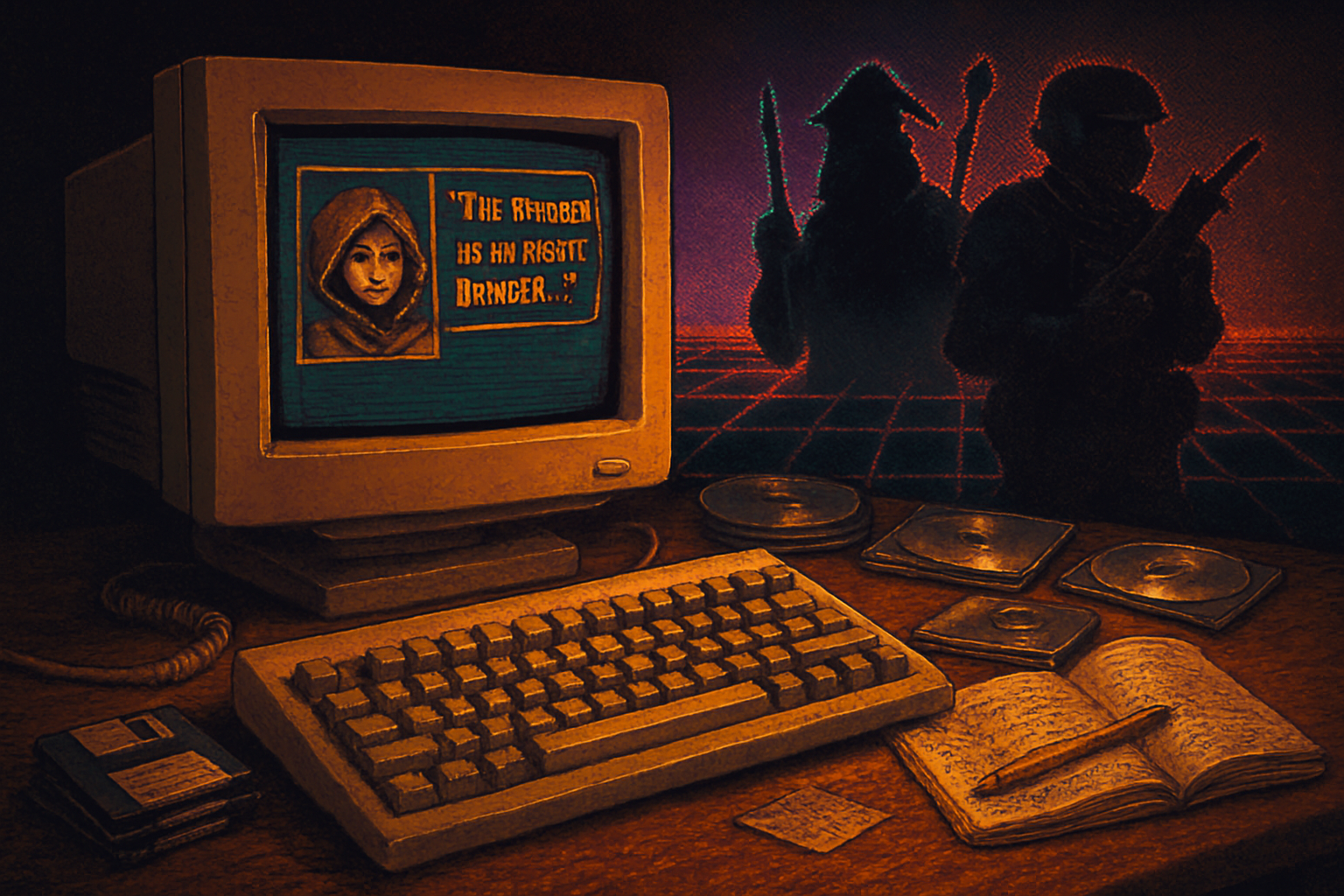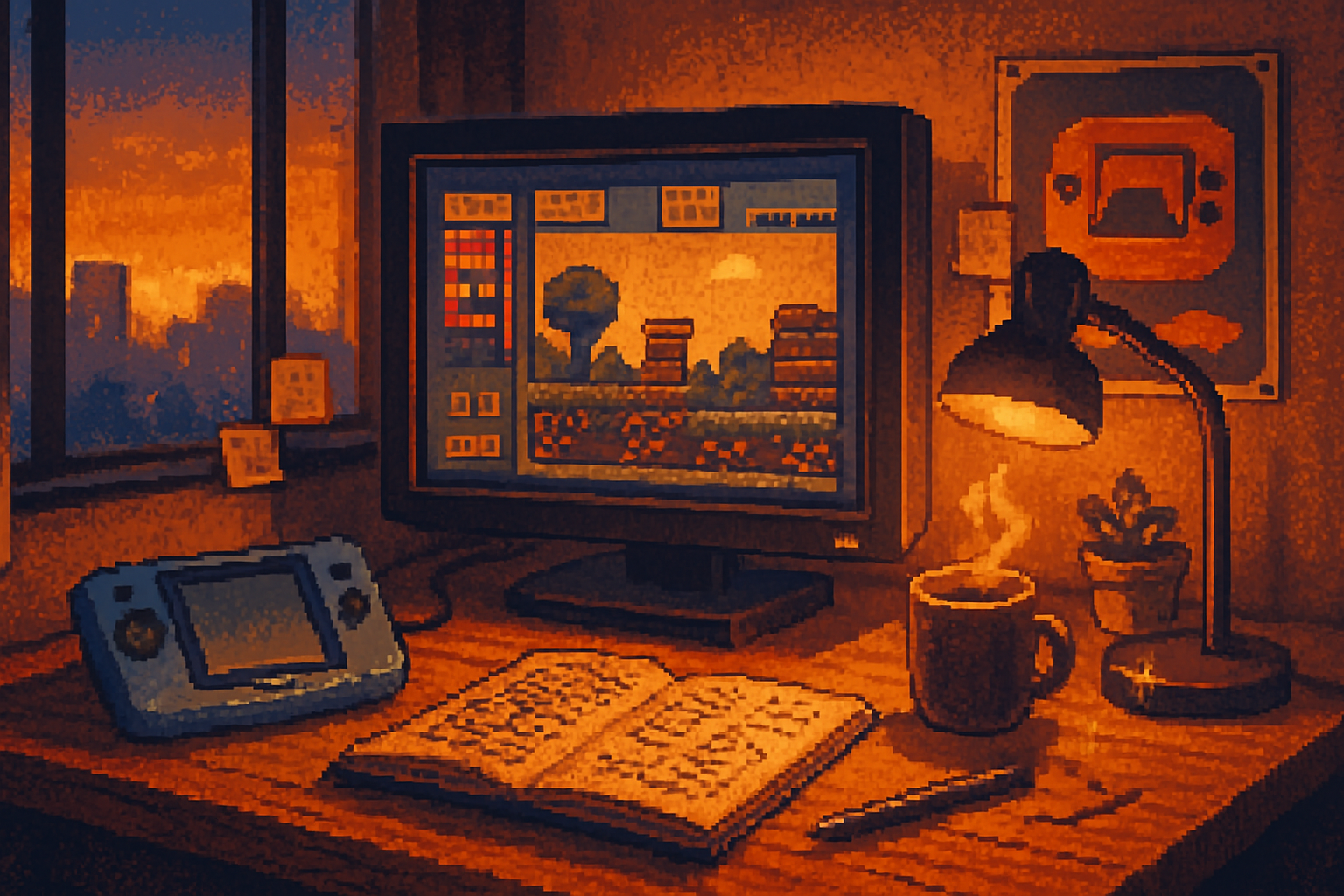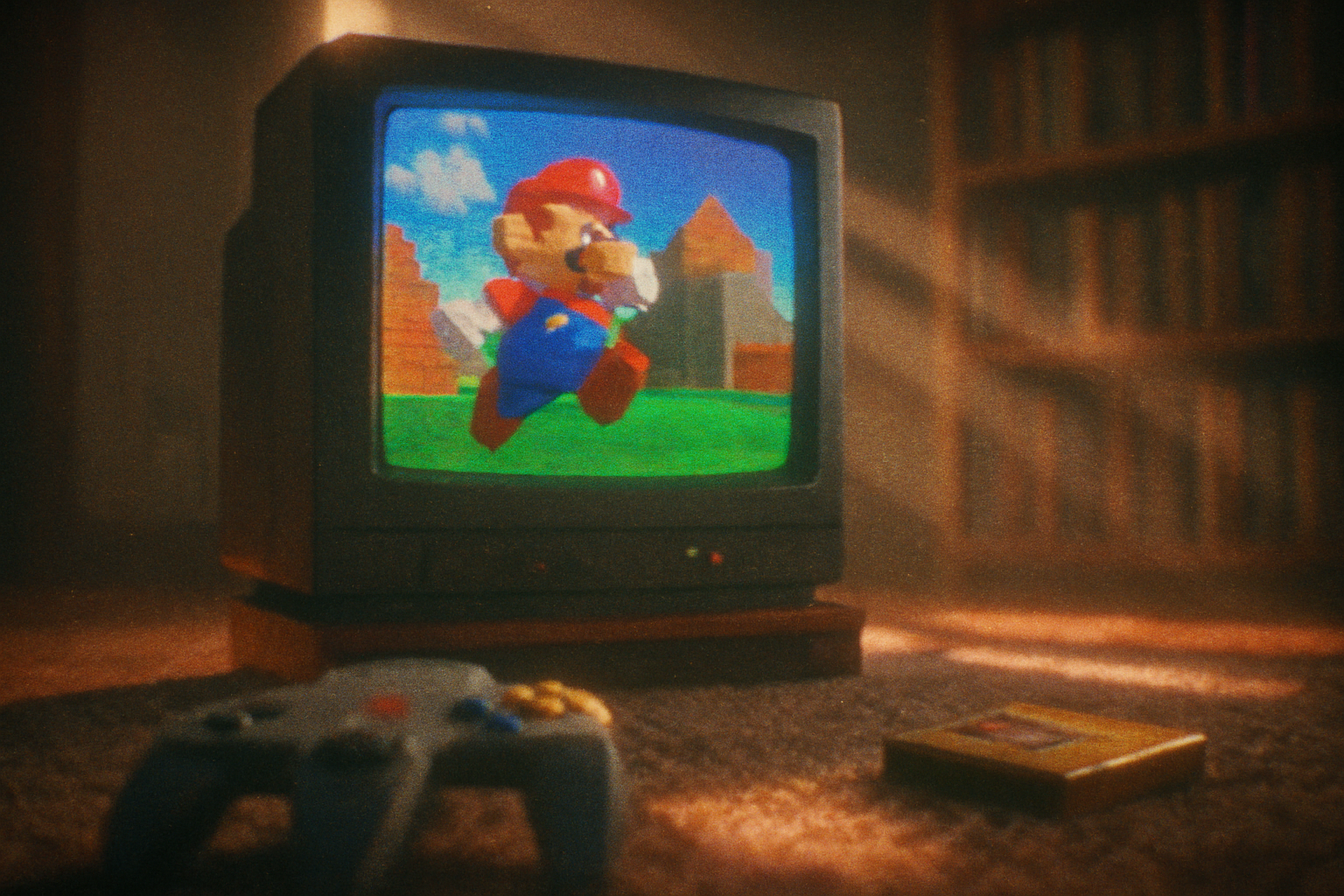· retrogaming · 6 min read
Gaming’s Golden Age: Why the Best Retro PC Games Are Better Than Modern Titles
A provocative look at why many classic PC games - from Planescape: Torment to System Shock and X-COM - still offer deeper storytelling, clearer systems, and more meaningful player agency than many modern releases. Supported by design analysis, player anecdotes, and evidence from gaming archives and retrospectives.

Introduction
It has become almost a cultural reflex: new features, bigger budgets, photorealistic graphics and day-one patches are presented as unquestionable progress. But step back, boot up something from the late 80s through the early 2000s, and you’ll frequently find experiences that feel, in surprising ways, richer and more honest than many contemporary titles.
This isn’t pure nostalgia. The best retro PC games often deliver denser storytelling, more imaginative systems, and player-facing design choices that reward thinking and exploration. Below I make that argument with concrete examples, community evidence, and pointers to why those old design habits still matter.
Why retro games still feel deeper
Constraint bred focus. Early PC teams had tiny budgets, smaller teams and limited runtime. Those constraints focused effort on core elements - writing, world rules, and mechanics - because there was no room for expensive spectacle. The result - design choices that emphasized player choice, character, and replayability.
Systems over spectacle. Many classic PC games built compact but expressive systems. Games like X-COM, Fallout (classic), and Baldur’s Gate don’t rely on cinematic set-pieces; they create emergent drama by combining a few well-tuned systems (combat, inventory, AI, social interaction).
Writing that respects the player’s imagination. Without hyperreal graphics, classic titles used prose, dialogue trees, and description to create characters and worlds. That partnership with the player’s imagination often produces memories that feel more personal and consequential.
Authorial voice and risk-taking. With lower commercial expectations, designers could try oddball ideas. Planescape - Torment, System Shock and the original Deus Ex are famous examples of titles that took narrative and mechanical risks modern AAA often avoids.
Evidence: lists, retrospectives and long tails
You don’t have to trust a single writer’s memory. Publications and aggregators still place many classic PC games near the top of “best of” lists decades after release. See PC Gamer’s ongoing roundup of the best PC games ever for titles that consistently return in top slots: https://www.pcgamer.com/best-pc-games/.
Metacritic’s platform and other aggregators likewise show that many of the highest scored and most-recommended PC games are older, single-player-focused titles. That longevity indicates sustained player appreciation and critical reevaluation: https://www.metacritic.com/browse/games/score/metascore/all/pc/filtered.
Player anecdotes and community evidence
Anecdotes aren’t academic proof, but they matter in games. Walk any retro thread and you’ll find the same motifs: “I replayed Planescape and it changed my life,” “System Shock still scares me more than anything released this year,” or “I learned role-playing from Baldur’s Gate.” Reddit’s retro communities catalog these recurring testimonies: https://www.reddit.com/r/retrogaming/.
More concrete community evidence appears in modern re-releases and mod scenes. Classic titles get remasters, community patches, and tens of thousands of forum posts and mods decades after release - proof of durable engagement. Re-releases on platforms such as GOG and the embrace of compatibility tools like DOSBox and ScummVM show there is an active audience for older designs (https://www.gog.com/, https://www.dosbox.com/, https://www.scummvm.org/).
Representative examples and what they teach
Planescape - Torment (1999) - Narrative density and player-centric storytelling.
- What it shows - You can make a game about ideas and identity and still be compelling. Dialogue and moral nuance are the engine.
- Lesson - Trust players to carry complex themes; mechanical systems can serve storytelling rather than interrupt it.
Baldur’s Gate II (2000) - Party-based AI, scripted encounters and character-driven narrative.
- What it shows - Deep consequence emerges when NPCs are treated as full characters with conflicting agendas.
- Lesson - Character depth and conversation systems create emotional stakes that action alone rarely does.
System Shock (1994) and Deus Ex (2000) - Emergent interactions and player-defined solutions.
- What they show - Design systems that can be used in multiple ways. Let players choose stealth, hacking, violence or diplomacy.
- Lesson - Systems that interlock allow expression; player freedom is a form of narrative authorship.
X-COM (1994) - Tension through permadeath and emergent stories.
- What it shows - Consequence matters. Losing a soldier you named creates long-term emotional investment.
- Lesson - Scarcity and permanence amplify meaning.
Why modern games sometimes fall short
Scope bloat and dilution. Bigger budgets and larger teams often push toward breadth over depth. AAA titles can be noisy collections of features that never cohere into a focused experience.
Monetization and live-service pressures. When systems are designed to maximize retention and monetization, player empowerment and narrative closure can be deprioritized in favor of repeatable loops and microtransactions.
Caution over experimentation. Massive budgets and shareholder pressure make publishers risk-averse. Innovative or ambiguous storytelling that might alienate some audiences is often avoided.
The illusion of realism. Photorealism can be persuasive, but it can also substitute for design. A gorgeously scripted sequence can feel less meaningful than a simple emergent interaction that players can own and repeat.
How the best retro lessons are already influencing modern design
Not all modern games are shallow. Indie studios - and even some AAA studios - often explicitly mine retro approaches:
- Indies build on old systems (turn-based tactics, text-driven narratives) while adding modern sensibilities.
- AAA remasters and reboots (and successful single-player projects) prove there’s still appetite for focused, authored experiences.
The academic and design perspective
Game scholars have long argued for serious attention to the medium’s unique forms. Jesper Juul’s Half-Real explores the relationship between rules and fiction and why both matter for meaning-making; it’s a useful frame for understanding why systemic clarity often produces emotional depth: https://mitpress.mit.edu/9780262240452/half-real/.
Preservation and accessibility
The fact that so many retro titles remain playable - thanks to archival projects and tools - is part of the case. The Internet Archive’s MS-DOS collection, community-run compatibility layers, and stores focused on classics mean these games are not just memory exercises; they’re accessible objects for study and play: https://archive.org/details/softwarelibrary_msdos_games.
Design takeaways modern developers should steal
- Embrace constraint - Focused scope often yields stronger, clearer experiences.
- Prioritize systems that interlock - Allow the world to respond to player choices rather than forcing a single script.
- Respect player imagination - Use description and dialogue to invite personal interpretation.
- Let consequences matter - Scarcity, permanence and meaningful loss increase investment.
- Take narrative risks - Allow ambiguity, moral complexity and authorial voice.
A final provocation
“Everything old is new again” can be a trite phrase - but when it comes to game design it’s worth repeating as a challenge. The golden age of PC gaming wasn’t inherently better than the present; it simply cultivated certain virtues we shouldn’t let slip away. If modern developers reclaim the clarity of purpose, systemic honesty, and willingness to sacrifice spectacle for meaning that characterized many classic PC games, we won’t be condemned to choose between glossy emptiness and nostalgic echo.
Further reading and sources
- PC Gamer - “The best PC games of all time”: https://www.pcgamer.com/best-pc-games/
- Metacritic - PC games metascores and lists: https://www.metacritic.com/browse/games/score/metascore/all/pc/filtered
- MIT Press - Jesper Juul, Half-Real: https://mitpress.mit.edu/9780262240452/half-real/
- GOG - Classic PC game storefront and DRM-free releases: https://www.gog.com/
- DOSBox (play classic DOS games): https://www.dosbox.com/
- ScummVM (play classic point-and-click adventures): https://www.scummvm.org/
- Internet Archive - MS-DOS Games Collection: https://archive.org/details/softwarelibrary_msdos_games
- Reddit - r/retrogaming (community anecdotes and discussion): https://www.reddit.com/r/retrogaming/

